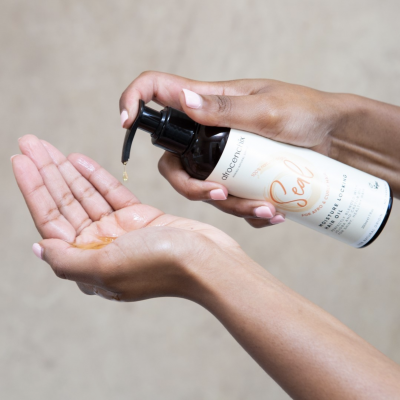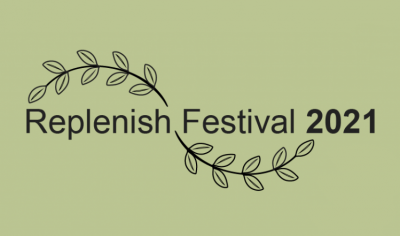Innovative education and student support
Afro haircare business backed by £1.2m Google seed fund

Concerned with the health implications of harsh chemicals used to straighten and ‘tame’ hair, UCL alumna Rachael Twumasi-Corson (UCL Medical Anthropology) co-founded Afrocenchix.
Afrocenchix started out in 2010 with just £100 for raw ingredients to create their own products, designed to celebrate rather than suppress afro hairstyles.
To grow the business further, they entered the UCL Bright Ideas competition in 2015 (now Build your own business 3: Launch your business) and won. They then joined BaseKX, UCL’s entrepreneurship hub, managed by UCL Innovation & Enterprise, where they received free, tailored support and dedicated office space.
Afrocenchix has since secured significant backing from investors, including $1.2 million in seed funding from Google. Their UK stockists include Superdrug and Whole Foods Market and last year the business was valued at over £12 million.
Alongside this inspiring business growth, Afrocenchix use their platform to challenge perceptions of beauty in mainstream media and speak of the challenges faced by black women in business. The company now aims to target US and African markets, and we wish them every success.
Faculty of Arts & Humanities’ Replenish Festival

At UCL the wellbeing of our students and staff is a key priority, yet taking care of each other when we're working remotely has been a challenge. In June, UCL’s Faculty of Arts & Humanities Wellbeing team in collaboration with UCL Workplace Health hosted Replenish Festival, to help UCL staff and students recharge, relax, and reflect on the year.
Spread over five days the festival of virtual events and experiences offered practical tips for caring for body and mind. Highlights included desk yoga, breathing techniques and use of the voice, to bibliotherapy, creative sessions and panel discussions. Senior staff including the Provost Michael Spence and Professor Stalla Bruzzi, Dean of Arts and Humanities, shared their own personal experiences of the year, speaking of the challenges they’d faced, which offered a great sense of connection to a UCL community in these often isolating times.
Through conversation and by building in opportunities to connect we continue to search for ways in which to keep our community thriving. You can find out more about services that run throughout the year at Workplace Wellbeing and Student Support and Wellbeing.
Connecting successfully with students via recorded lectures

Since the onset of the pandemic and the initial “emergency pivot” to online teaching, we have developed an even greater understanding of what approaches work best for our students’ education. UCL’s 'blended by design' approach this year responds to our students’ feedback on what activity they would like to see return to face-to-face and what should remain online and accessible in a way that suits their learning. An appropriate ‘blend’ of teaching often includes ‘live’ online lectures or video recordings of equivalent length – but it’s not as simple as it sounds. How do you maintain a connection and hold students’ attention when they are not sitting in front of you?
Professor Simon Gaisford from UCL’s School of Pharmacy took an intuitive approach to creating an online lecture series for UCL’s MPharm programme, looking at ways that he could ‘humanise’ his content, connect with students through the camera and use a lecturing style that captured and held his students’ attention.
Simple techniques can have a big impact: using a reassuring tone and language, looking directly into the camera to address students, telling them what to expect in each video and signposting extra sources of support all help to build and maintain interest and engagement. Students responded strongly to Simon’s deliberately conversational, informal style in this popular video series.
Simon also found that giving students access to his slides to view alongside the video gave them a sense of ownership and control over the pace of the learning and allowed them to maintain their connection with the teacher on the screen.
You can see some of Simon’s videos on his YouTube channel, Pharma Drama.
Images
- Landing page thumbnail: The Afrocenchix Team, credit Afrocenchix
- Haircare product, credit Afrocenchix
Professor Simon Gaisford, on Youtube
 Close
Close

